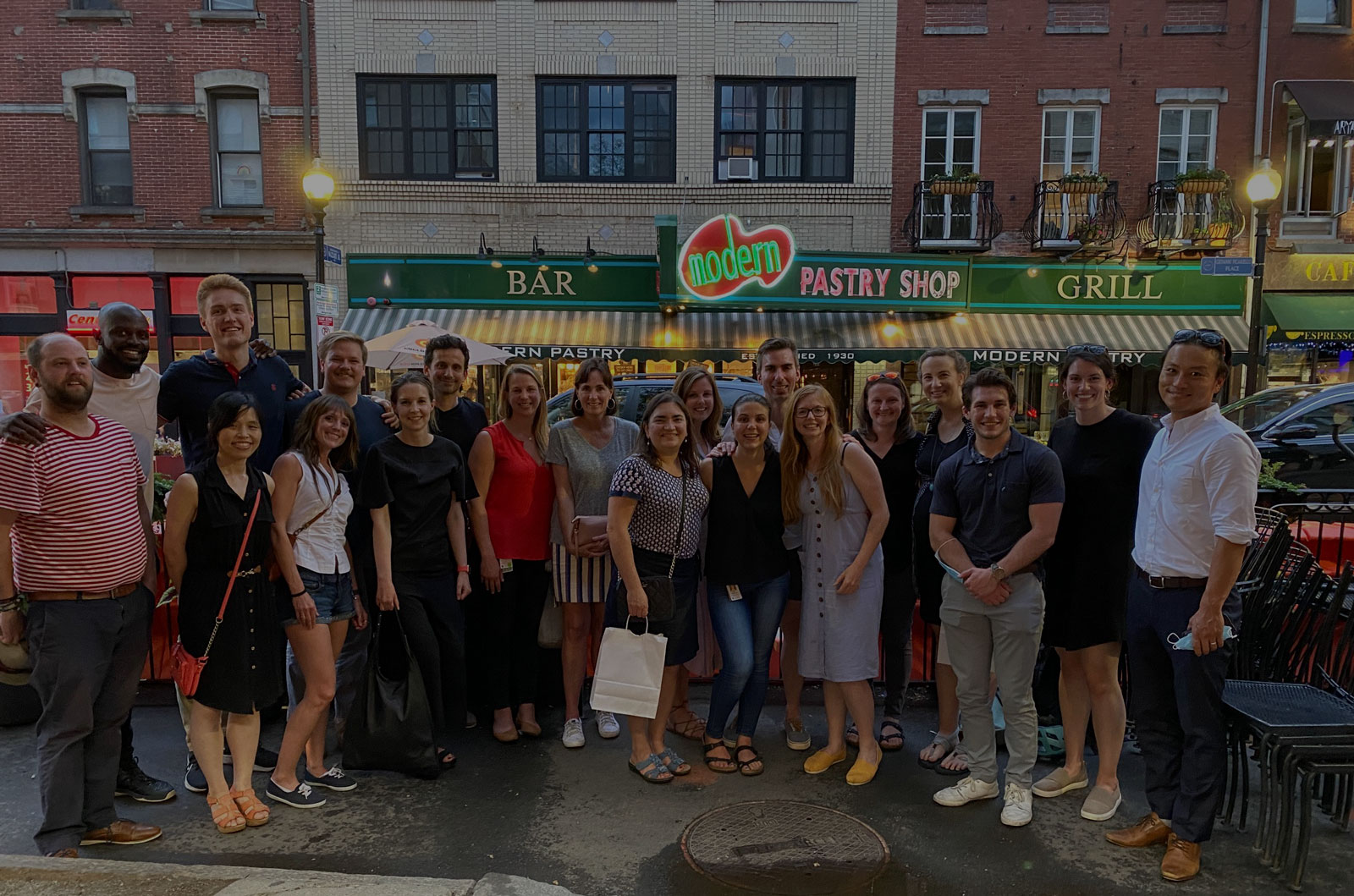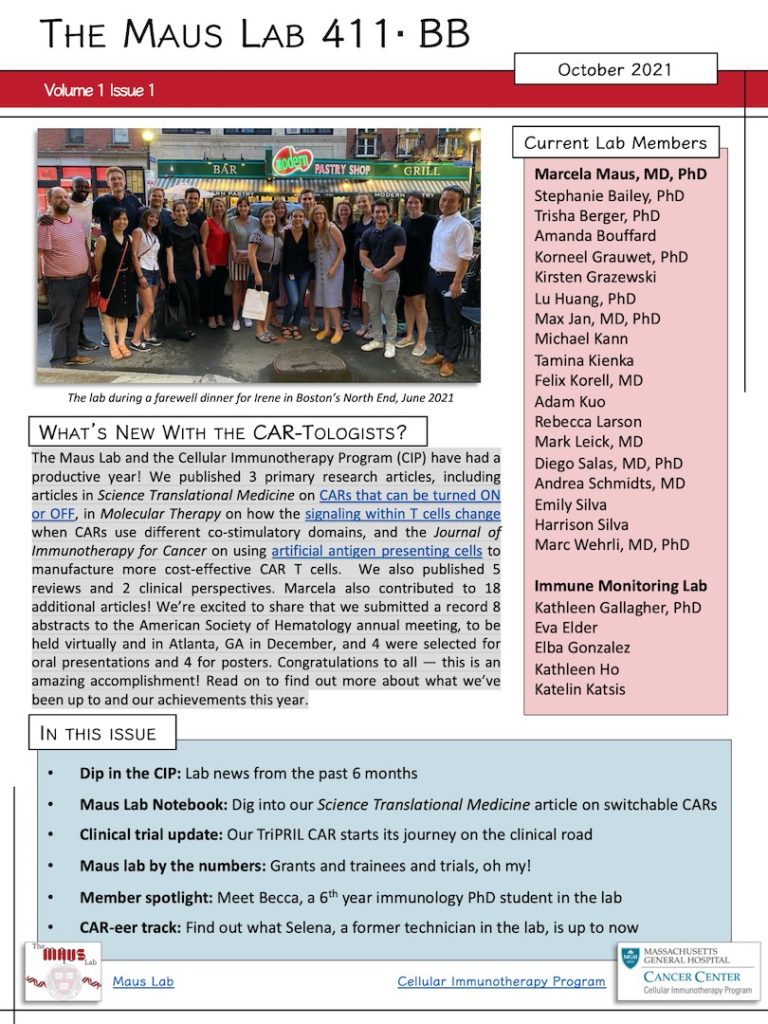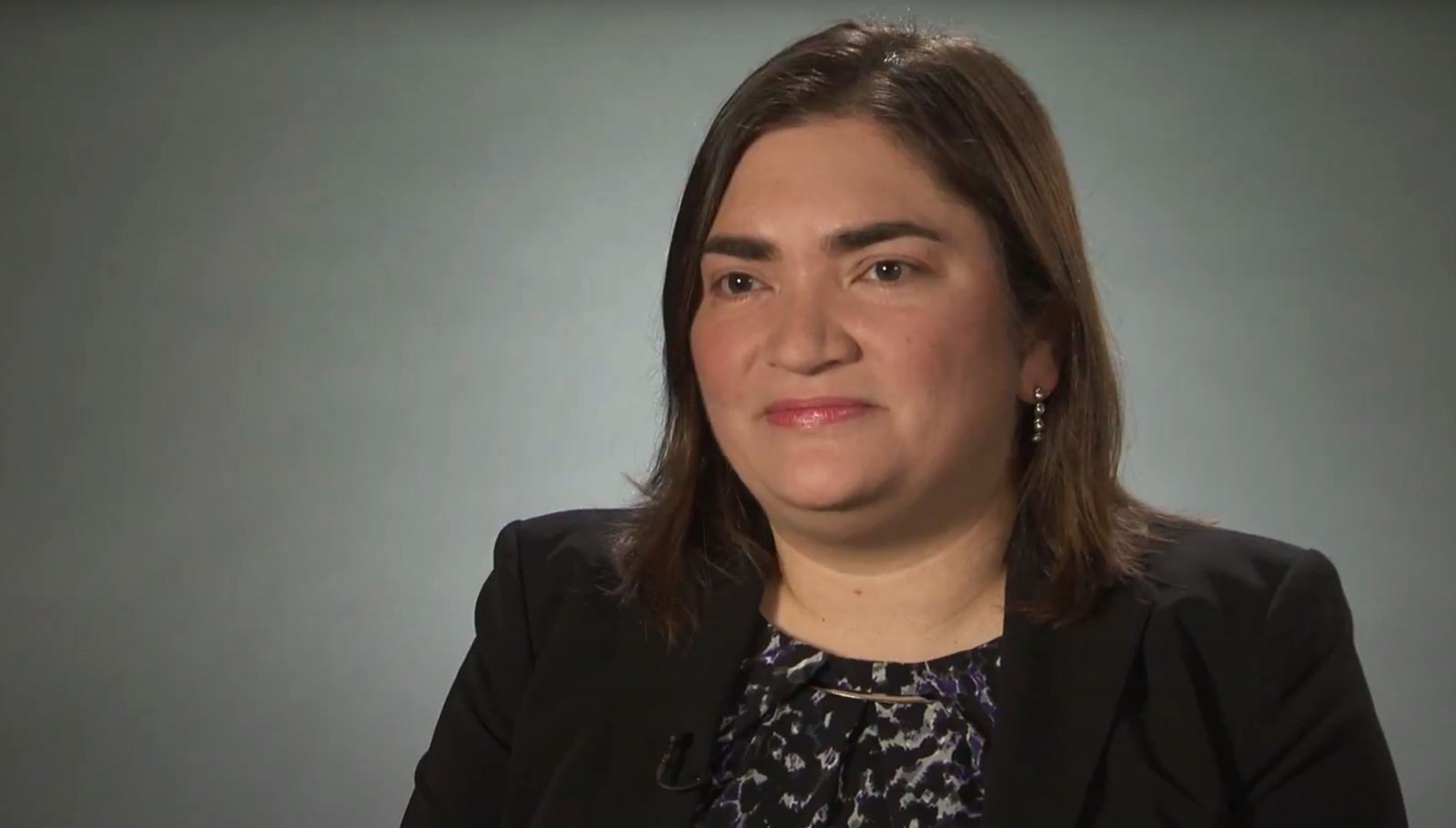THE MAUS LAB 411∙ BB
The Maus Lab and the Cellular Immunotherapy Program (CIP) have had a productive year! We published 3 primary research articles, including articles in Science Translational Medicine on CARs that can be turned ON or OFF, in Molecular Therapy on how the signaling within T cells change when CARs use different co-stimulatory domains, and the Journal of Immunotherapy for Cancer on using artificial antigen presenting cells to manufacture more cost-effective CAR T cells. We also published 5 reviews and 2 clinical perspectives. Marcela also contributed to 18 additional articles! We’re excited to share that we submitted a record 8 abstracts to the American Society of Hematology annual meeting, to be held virtually and in Atlanta, GA in December, and 4 were selected for oral presentations and 4 for posters. Congratulations to all — this is an amazing accomplishment! Read on to find out more about what we’ve been up to and our achievements this year.





